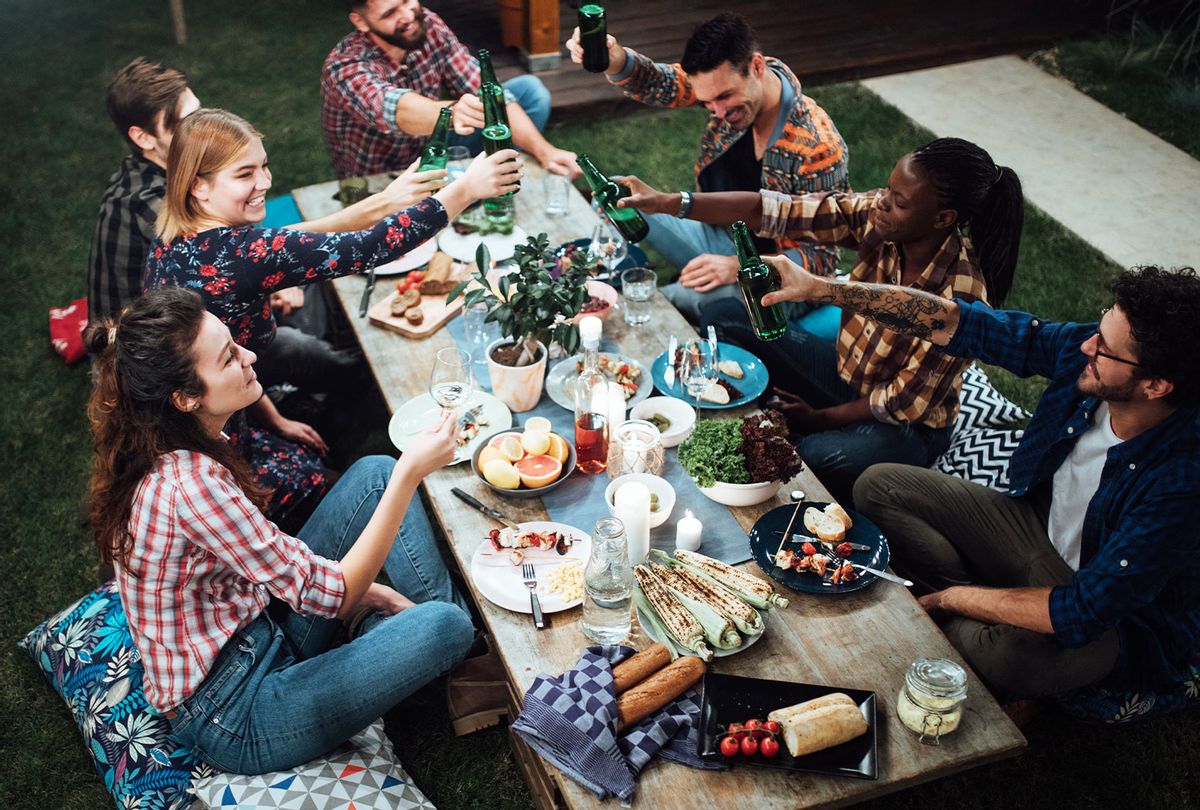Americans have spent the better part of the past two years enduring pandemic-induced lockdowns, hypernesting, fear, division and communal loss. We have foregone holidays and other gatherings, and so much else. And while we were doing so, many of us had time to reflect and reprioritize our lives. We are not the same as the people who gathered back in 2019, before we knew pandemic life. And while Thanksgiving celebrations last year were shaped largely according to health and safety measures, this year's gatherings could provide a glimpse into how the holiday might be shaped permanently by the long-lasting social impacts of COVID-19.
As one of the United States' oldest traditions, Thanksgiving provides a vantage point on how society has shifted over time. In other words, Thanksgiving is a bellwether of social change. From changing gender roles in terms of who prepares and serves the meal to what to serve, Thanksgiving often reflects larger social transformations. In recent years, social scientists and journalists have noted the rise of "Friendsgivings," which focus on sharing the day with families of choice rather than families of birth. This year changes to the holiday table will build on the public health adjustments of last year but will be largely driven by underlying social considerations.
In 2021, there is much to be grateful for as compared to last year. The vaccines have restored some increased capacity to work, attend religious services, go to school, and see intimates in real life with far less risk of serious illness or death. However, the disruption of daily life caused by the pandemic is proving to have a long tail. The pause created from lockdowns and social distancing created a period of hesitation that seems to have tipped over into a period of reconsideration in many aspects of life. For example, much of working life is being reconsidered in what is being called the Great Resignation; similarly, some of the social habits we practiced with holidays may not return, despite greater ability to stay healthy.
RELATED: We asked mental health experts how to cope with a lonely Thanksgiving
Now almost two years into the pandemic, our social habits — our "flight patterns" — have altered dramatically. Proms and baby showers were cancelled, concerts moved outdoors. We have learned to watch sports differently, perform theater distantly, huddle under trees for stand-up meetings and first dates, and walk and talk with coworkers rather than sit at a conference table. Those of us who went to work in person, did so skittishly, with concern often and amidst risk. Most of us with children had to learn how to have them at home all the time, and reinvent what it means to be a student in an era when our very breath was dangerous in a classroom. We changed everything; why would Thanksgiving be any different?
Want more great food writing and recipes? Subscribe to Salon Food's newsletter, The Bite.
For many, this year's holiday guest list may well reflect ongoing social reprioritizations. For some people, isolation may feel comforting even when it is no longer as necessary. Others have found this time to be revelatory, confirming they don't want to restore old habits. People are also grappling with new questions like whether we want to open our homes up, or re-start relationships with our potential guests. We may wonder: Do I know how they navigated the pandemic yet? Are they able to talk about anything other than COVID-19? Will we be able to be simpatico over a long meal?
Temporarily disrupting our habits may have rightly convinced us to courageously rewrite traditions and tendencies that are costly to us: We may choose to discontinue sharing the holiday with a member of the family who is abusive, or who uses the generosity of the season to act out instead of celebrate. In short, this year might be a serious test of who we consider the "we" of our family.
Questions about sharing and not sharing food include reassessments of with whom we wish to share this period of re-opening — a time when we return somewhat timidly and tenderly to previous social acts. Perhaps there will be new seats at the table based on who we shared the pandemic with, or new refusals based on fissures exacerbated by the pandemic. For some, the miniaturized celebrations that were possible in 2020 held some real promise — sometimes the smaller circle turned out to have its benefits. The modifications were an unexpectedly pleasant way to spend the holidays and rushing to return to pre-pandemic celebrations doesn't necessarily hold the same appeal.
As we know from past pandemics, ruptures of this magnitude change everything from how you form families and how you set up cities, to who and how you love. As the pandemic becomes endemic, many of the changes required for safety may adhere for the sake of certainty, comfort, or preference. Holiday celebrations this year will be a window on more sustained changes to intimacy and ritual. Thanksgiving will be an early peek at how social life is maneuvered as we move out of pandemic living and into endemic COVID-19 life.
More stories about Thanksgiving from Salon:

Shares